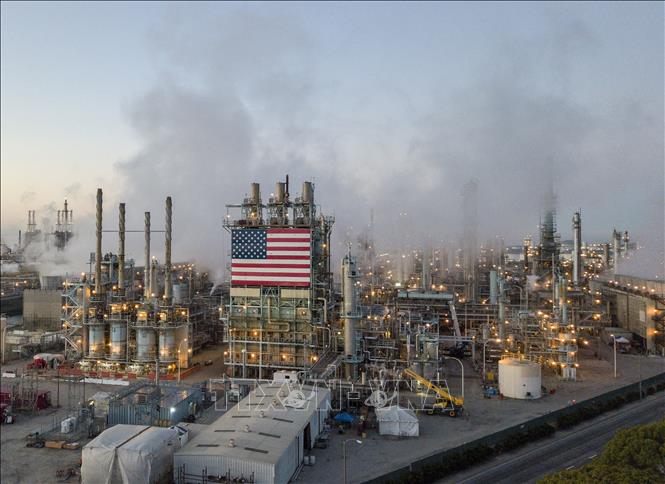According to economic experts, the Red Sea crisis is the reason for pushing world oil prices to their current high levels.

On February 2, the price of North Sea Brent crude oil was trading at $77.33/barrel, while the price of US light sweet crude oil (WTI) stopped at $72.28/barrel. Excluding geopolitical instability, observers believe that the actual price of oil should only fluctuate around $70-75/barrel.
Explaining this, experts said that most of the important market forces are pulling oil prices down. Analyst Rebecca Babin, from CIBC Asset Management, said: "Although it seems that oil prices have not fallen significantly, it is clearly being held back by a fundamental weakness."
That weakness stems from slowing demand in China and a glut of oil in the market, as non-OPEC countries continue to expand production.
Despite recording 5.2% growth in 2023, China’s economy is showing signs of slowing, especially in the real estate and investment sectors. According to Babin, the weak demand outlook for the world’s top oil importer will be the biggest threat facing the global oil market in 2024.
Furthermore, OPEC is another force that is driving down oil prices. The production cuts by the organization, led by Saudi Arabia and Russia, have not been effective in boosting oil prices. Markets are now skeptical about whether OPEC will soon lift the production cuts, given the increasing competition for oil supplies as non-OPEC members increase production.
This explains why the Red Sea tensions are the only reason for the rise in oil prices. In an update note on February 1, Babin explained that oil supplies have not been significantly reduced due to the escalation of tensions in the Middle East. Therefore, oil is not priced based on a lack of supply, but higher transportation costs have supported prices. He estimated that the impact of increased costs related to transportation/insurance around the Red Sea region on oil prices is around $2-3.
“Technically there has been no disruption to supply, but the longer delivery times are what is pushing prices up slightly,” said Hunter Kornfeind, an analyst at Rapidan Energy.
Expert Babin estimates that if tensions in the Red Sea do not end soon, oil prices could likely climb to $90 per barrel in the near future.